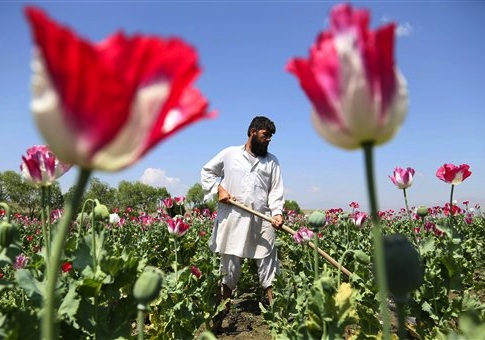What, for over thirteen years, have we been doing in Afghanistan? What have we been fighting for? What has gone so wrong?
Jack Fairweather, in his book, The Good War: Why We Couldn’t Win the War or the Peace in Afghanistan, attempts to address these questions. A former foreign correspondent for both the Daily Telegraph and the Washington Post, Mr. Fairweather brings a storyteller’s touch to a modern history of Afghanistan that will be of interest to history buffs, conflict connoisseurs, and—as Mr. Fairweather hopes most—policy-makers reflecting on what has happened.
Mr. Fairweather targets two ghosts that, in his mind, have haunted the international efforts to stabilize Afghanistan: that the entire venture has been a misbegotten fantasy to plant democracy where roots won’t stick; and that the failure to negotiate with the Taliban has helped to cause an interminable conflict. Mr. Fairweather’s impressive command of the facts and engaging narrative style are thoroughly satisfying—but the facts and the narrative do not fully support his two-pronged thesis.
Mr. Fairweather condemns the "messianic vision [that] is rooted in the belief that all societies aspire to achieve western-style democracy and that promoting such democracies makes the world at once more secure and just." However, the war in Afghanistan started out as a response to September 11th and a hunt for Osama bin Laden—which Fairweather does describe, with interesting details pulled from various CIA sources—and morphed over time in complex ways. Actually, the U.S. military was initially leery of "nation-building," only fully committing to such a course with the importation of a counterinsurgency strategy from Iraq in 2009. Even then, there were dissenting voices, not to mention a lack of support for the strategy from powerful quarters in Washington.
Moreover, whether or not Afghanistan is unforgiving soil for democracy, the war effort's deficiencies are more convincingly attributed to garden-variety mismanagement and strategic confusion. The facts Mr. Fairweather uncovers show a catastrophically disorganized engagement that has been victim to endless strategic flux, ceaseless turf battles, and a parade of characters with just enough influence to intervene, but not enough to do so decisively.
Mr. Fairweather’s second proposition is that the Afghan government and its international allies must do more to bring the Taliban to the table for negotiations. But recognizing the Taliban's past is critical to the balance one needs to understand the full complexity of negotiating with its adherents. Mr. Fairweather makes only passing reference to the horrors of the historic Taliban regime. That period has left an unforgettable imprint on the vast majority of Afghans who are not young, male, Pashtun tribal members from portions of the country’s south and east.
Conflating the genuine desires of most Afghans with the factional hopes of the limited demographic that constitutes the Afghan Taliban's base threatens to undermine Mr. Fairweather's otherwise lucid and captivating history. It may be that a strategy of selective engagement is, thinking in realpolitik terms, the only way forward—but most Afghans find lasting peace with the Taliban difficult to stomach. The essence of the Taliban's political theology is religious and ethnic domination—what sort of "peace" deal are, say, northern Tajik Afghans going to strike with a group like that?
The most impressive aspects of Mr. Fairweather’s book are found when he zooms in. He provides a penetrating look into various provincial dynamics often difficult to comprehend for the casual observer—here, his extensive research pays off most handsomely. He captures the tribal complexity that magnified many difficult aspects of the war effort, usefully quoting the Irish diplomat Michael Semple’s observation that the Taliban were simply better manipulators of local politics.
Mr. Fairweather also describes soldiers scraping dirt off landmines, reveals the content of the Taliban's nocturnal radio transmissions, and poignantly examines the mental anguish and stamina of soldiers on seemingly endless extensions of battle tours.
Another of Mr. Fairweather’s strengths is his analysis of the aid community’s engagement with the country and his familiarity with personalities on both a national and provincial scale. He astutely describes Ashraf Ghani—now the president of Afghanistan—as a demanding but prudent steward of Afghanistan’s future while Minister of Finance. Mr. Fairweather convincingly depicts Ghani's early insights about the fundamental need to build Afghan public financial infrastructure, the future of which will continue to be one of the factors critical to the Afghan state’s success. So, too, he provides personality sketches of civilians like Clare Lockhart, Thomas Ruttig, Tom Gregg, and John Kael Weston, which add relief and texture to an otherwise necessarily grim history of military combat and high-politics.
Mr. Fairweather also provides harrowing glimpses into perilous situations faced by the average soldier. In July 2008 an American platoon in eastern Afghanistan commenced an operation in the Wanat village only to find that the base supposed to have been constructed for them had not been built. At another point roughly a year later, members of the Welsh Guards reached a canal where the operational plan required cover from tanks, but the geography permitted no tank access, leaving the soldiers to walk unprotected into a death trap.
Fairweather offers much more detail to reward his readers. Though his two main themes leave something to be desired, his penetrating factual and historical effort makes an important contribution to posterity.
Brock Dahl previously represented the U.S. Department of the Treasury on the Afghanistan Interagency Operations Group, and is currently a lawyer in Washington, DC. He has written extensively on corruption and organized crime in post-conflict states.
